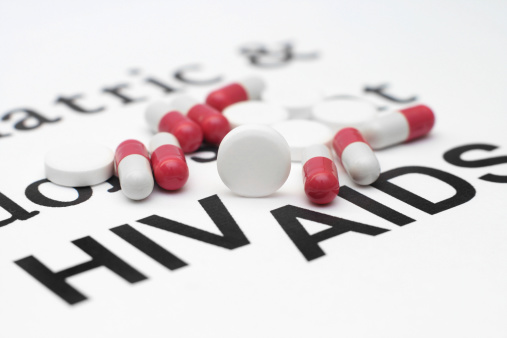
The buildup of soft plaque in coronary arteries is more common and extensive in HIV-infected men than in men not infected by the virus, according to a new study by researchers at the National Institutes of Health. Soft plaque ruptures more commonly than hardened plaque and is therefore a serious risk for heart attacks.
The authors of the new study found that blockage in a coronary artery was most common among HIV-infected men whose immune systems had declined significantly over the course of their infection and who had taken anti-HIV drugs the longest
“These findings from the largest study of its kind tell us that men with HIV infection are at increased risk for the development of coronary artery disease and should discuss with a care provider the potential need for cardiovascular risk factor screening and appropriate risk reduction strategies,” said Gary H. Gibbons, M.D., director of the National Heart, Lung, and Blood Institute which is a division of the National Institutes of Health.
For the study, the researchers recruited just over 1,000 participants from the Multicenter AIDS Cohort Study (MACS), a study of HIV/AIDS in gay and bisexual men established by the National Institute for Allergy and Infectious Diseases, another division of the NIH nearly 30 years ago. The study participants included 618 men who were HIV-infected and 383 who were not. All were 40 to 70 years of age, weighed less than 200 pounds, and had had no prior surgery to restore blood flow to their coronary arteries.
The researchers found coronary atherosclerosis due to soft plaque in 63 percent of the HIV-infected men and 53 percent of the HIV-uninfected men. After adjusting for cardiovascular disease risk factors, including high blood pressure, diabetes, high cholesterol, high body mass index and smoking, the presence of soft plaque and the cumulative size of the plaques were significantly greater in men with HIV infection.
The researchers also found two predictors of advanced atherosclerosis in the study participants. The first predictor was in with white blood cells called CD4+ T cells, which are the primary target of HIV and whose level, or count, is a measure of immune health. The researchers found that for every 100 cells per cubic millimeter decrease in a man’s lowest CD4+ T cell count, his risk of coronary artery blockage rose by 20 percent. The scientists also found that for every year a man had taken anti-HIV drugs, his risk of coronary artery blockage rose by 9 percent.
The researchers say studies on therapies and behavioral changes to reduce risk for cardiovascular disease in men and women infected with HIV are needed to determine how best to prevent progression of atherosclerosis in this population.
The study is very important because HIV experts say that especially among young adults HIV is not seen as the threat it once was decades ago because there are drugs to treat the infection. Health experts say it’s important to communicate the risks of the disease—which can include side effects of the drugs to treat the infection—so that people at risk for HIV will take precautions to avoid contracting the virus.
The study was published in the Annals of Internal Medicine.





